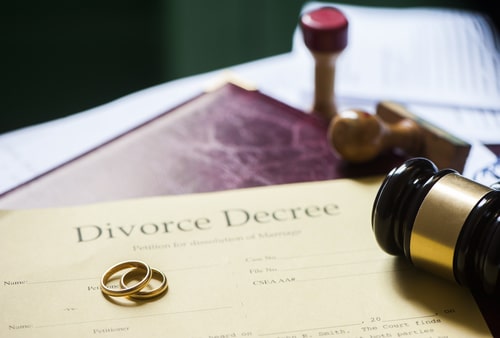Recent Blog Posts
Relocation and Child Custody in Illinois
 For divorced or separated parents in Illinois, the issue of relocation and how it affects child custody can be a complex and emotionally charged one. When one parent wishes to move a significant distance away from the child(ren), it raises important questions about maintaining the other parent’s relationship with the child and serving the child’s best interests. An Illinois lawyer can help you understand the guidelines and how relocation cases are evaluated.
For divorced or separated parents in Illinois, the issue of relocation and how it affects child custody can be a complex and emotionally charged one. When one parent wishes to move a significant distance away from the child(ren), it raises important questions about maintaining the other parent’s relationship with the child and serving the child’s best interests. An Illinois lawyer can help you understand the guidelines and how relocation cases are evaluated.
The Legal Standard
Under the Illinois Marriage and Dissolution of Marriage Act (750 ILCS 5/609.2), the parent seeking to relocate takes on the burden of proving that the relocation is in the best interests of the child. The court will consider several factors, including:
- The reasons for the intended relocation
- The reasons for opposing the relocation
- The history and quality of each parent’s relationship with the child
Protecting Your Rights as a Grandparent in Illinois
 If your child is going through a divorce, you may be worried about maintaining your relationship with your grandchildren. Divorce can disrupt grandparent-grandchild bonds, but Illinois law provides some protection for grandparent visitation rights. An Illinois lawyer can help you determine what you need to know to protect your access to your grandchildren during and after your child’s divorce.
If your child is going through a divorce, you may be worried about maintaining your relationship with your grandchildren. Divorce can disrupt grandparent-grandchild bonds, but Illinois law provides some protection for grandparent visitation rights. An Illinois lawyer can help you determine what you need to know to protect your access to your grandchildren during and after your child’s divorce.
Your Visitation Rights Under Illinois Law
Illinois law allows judges to provide visitation rights to grandparents if it is in the child’s best interests. As a grandparent, you can petition the court for visitation if one of the following circumstances applies:
- One of the parents has died or has been declared mentally ill or incompetent.
- The parents are going through a divorce or have been divorced for under a year.
- The child was born out of wedlock, and paternity was established.
Steps to Request Visitation
If you want formal visitation rights with your grandchild after a divorce, here are the steps to take:
When to Seek Mediation for Child Custody in Illinois
 When parents decide to separate or divorce, one of the most crucial and emotionally challenging aspects is determining child custody arrangements. Mediation is an increasingly popular alternative to traditional court proceedings for resolving child custody disputes. An Illinois lawyer can help you determine when seeking mediation for child custody is appropriate.
When parents decide to separate or divorce, one of the most crucial and emotionally challenging aspects is determining child custody arrangements. Mediation is an increasingly popular alternative to traditional court proceedings for resolving child custody disputes. An Illinois lawyer can help you determine when seeking mediation for child custody is appropriate.
Understanding Child Custody Mediation
Child custody mediation is a process in which a neutral third party, known as a mediator, facilitates communication between parents to help them reach a mutually agreeable custody arrangement. The mediator does not make decisions but rather guides the parents in discussing their concerns and exploring potential solutions that prioritize the child's best interests.
When to Consider Mediation
- You want to maintain a cooperative relationship with your co-parent: If you and your co-parent are committed to maintaining a collaborative and amicable relationship for the sake of your children, mediation can be an excellent choice. Mediation promotes open communication and encourages parents to work together to find solutions, setting the foundation for a healthy co-parenting relationship.
Will It Affect My Illinois Divorce if My Ex Files First?
 Divorce is a complicated process. There are so many factors to take into consideration and steps that need to be completed that it can feel hard to keep track of it all. This is true even in the beginning stages of a divorce. How do you even begin divorce proceedings? Does it matter where you file for divorce? Does it matter who does? Below, we will examine any implications there may be regarding who files for divorce. Of course, a knowledgeable Aurora, IL divorce attorney can provide more detailed information that will be relevant to your specific case.
Divorce is a complicated process. There are so many factors to take into consideration and steps that need to be completed that it can feel hard to keep track of it all. This is true even in the beginning stages of a divorce. How do you even begin divorce proceedings? Does it matter where you file for divorce? Does it matter who does? Below, we will examine any implications there may be regarding who files for divorce. Of course, a knowledgeable Aurora, IL divorce attorney can provide more detailed information that will be relevant to your specific case.
Does It Matter Who Files First?
In the state of Illinois, whoever files first for divorce has no bearing on the proceedings that will follow. As Illinois is a no-fault divorce state, neither side should provide any reason other than “irreconcilable differences” for wishing to end the marriage. As such, there is no legal advantage to filing first since neither side needs to prove anything other than the fact that they simply cannot get along anymore.
Different Ways of Ending Marriage Explained
 Marriage is a major step in anyone’s life, but sometimes, people take that step before they are truly ready. Perhaps they felt pressured by their family, tradition, society, culture, or the person they were dating, but when someone enters a marriage before they are ready to do so, it can sometimes spell disaster. The good news is that an unhappy or unhealthy marriage is not a life sentence and there are ways to get out of it, and divorce is only one of them. If you are married and no longer want to be, you should consult a Batavia, IL divorce attorney to find out what your options are.
Marriage is a major step in anyone’s life, but sometimes, people take that step before they are truly ready. Perhaps they felt pressured by their family, tradition, society, culture, or the person they were dating, but when someone enters a marriage before they are ready to do so, it can sometimes spell disaster. The good news is that an unhappy or unhealthy marriage is not a life sentence and there are ways to get out of it, and divorce is only one of them. If you are married and no longer want to be, you should consult a Batavia, IL divorce attorney to find out what your options are.
How to End a Marriage in Illinois
Based on the specific circumstances of your marriage, you might go in one of three main directions to end your marriage:
Divorce
This is likely the most commonly known method for ending a marriage, but it can also be one of the most complicated processes to go through, depending on your dynamic with your spouse. Several factors can increase or reduce the amount of tension you might experience in your divorce. These include whether you have a contested or uncontested divorce, whether you have children, whether you have both been working and earning, whether one of you depends on the other’s income, whether this is a high-asset divorce, whether there is significant marital debt, and more. Regardless of the surrounding factors, a divorce means that there will be a public record that you once were married and now you are not, and this will be legally binding and recognized.
How Can an Illinois Divorce Order Be Enforced or Modified?
 Divorce can be a complicated process to go through in the best of times. It can be even more so if either of the ex-spouse’s circumstances change down the road. While divorce settlements generally address their future needs by stipulating what is expected of each spouse going forward, changed circumstances might make one of them unable to meet those expectations. If one spouse agrees to pay the other spousal support in their settlement and then loses their job, if the two share equal parental rights and visitation but then one gets relocated, or if one parent has primary custody but then becomes seriously ill and is unable to care for the child, these are all just a few of the many reasons why a divorce order might be modified. If circumstances in your life have changed and you think you need divorce order modifications, an Illinois divorce attorney can review the information and advise you on how to move forward.
Divorce can be a complicated process to go through in the best of times. It can be even more so if either of the ex-spouse’s circumstances change down the road. While divorce settlements generally address their future needs by stipulating what is expected of each spouse going forward, changed circumstances might make one of them unable to meet those expectations. If one spouse agrees to pay the other spousal support in their settlement and then loses their job, if the two share equal parental rights and visitation but then one gets relocated, or if one parent has primary custody but then becomes seriously ill and is unable to care for the child, these are all just a few of the many reasons why a divorce order might be modified. If circumstances in your life have changed and you think you need divorce order modifications, an Illinois divorce attorney can review the information and advise you on how to move forward.
How Can the Court Enforce Our Divorce Order?
There can be serious legal repercussions if either ex-spouse violates the terms of their divorce settlement. If, for example, they do not make their child support payments, the court can issue a legal order requiring them to pay whatever they owe. If they still fail to pay, they risk being placed on probation, getting their driver’s license suspended, or possibly serving jail time. The courts have different ways to handle all the various types of divorce order violations. If your ex is not fulfilling their part of your divorce settlement, either by not paying child or spousal support or by failing to comply with your custody agreement and not ensuring your child is available at preappointed times, you can appeal to the court to help enforce your settlement. An experienced divorce lawyer will be familiar with the process and can walk you through it.
5 Tips for an Illinois Divorce
 Divorce can be a complicated and emotionally draining process for anyone to go through. You are forced to make decisions about your future with the person you are breaking up with. While this can be painful in the moment, and you may feel unable to discuss things like asset division, spousal support, and child visitation, it is important that your divorce settlement will protect your best interests for years to come. If you are about to get divorced, a compassionate Batavia, IL divorce lawyer can advise you as you embark on this crucial path.
Divorce can be a complicated and emotionally draining process for anyone to go through. You are forced to make decisions about your future with the person you are breaking up with. While this can be painful in the moment, and you may feel unable to discuss things like asset division, spousal support, and child visitation, it is important that your divorce settlement will protect your best interests for years to come. If you are about to get divorced, a compassionate Batavia, IL divorce lawyer can advise you as you embark on this crucial path.
Tip 1: Make Sure You Have a Thorough Understanding of Your Finances
Your finances can be significantly affected by a divorce, and they can also determine how various aspects of divorce will be settled. Start collecting financial documentation to make sure you have a good understanding of your and your spouse’s income, assets, expenses, and debts.
Tip 2: Disclose All Liabilities and Assets
Hiding crucial information about any assets or liabilities you may have might seem like a good way to get a favorable settlement. However, this is against the law and can result in fines, criminal charges, or other legal consequences. It is best to be open and honest and provide all information available so that everyone involved has a clear and accurate understanding of what is involved.
Deciding What to Do with Your Family Home in a Divorce
 A couple going through a divorce needs to figure out all the ways their marital assets and property will be equitably divided. While you might think that getting more things in a settlement equals more value, there are other things to consider. Some assets and properties might actually end up costing you money. If you can afford to handle the added costs on your one, that might not be a problem. If you will not be able to cover all these costs, you might find that it would serve your best interests not to take some assets in your divorce. If, for example, you are trying to decide whether you want to keep your family home in your divorce, a knowledgeable St. Charles, IL divorce lawyer can help you understand what the added costs will be and whether it is something financially viable for you.
A couple going through a divorce needs to figure out all the ways their marital assets and property will be equitably divided. While you might think that getting more things in a settlement equals more value, there are other things to consider. Some assets and properties might actually end up costing you money. If you can afford to handle the added costs on your one, that might not be a problem. If you will not be able to cover all these costs, you might find that it would serve your best interests not to take some assets in your divorce. If, for example, you are trying to decide whether you want to keep your family home in your divorce, a knowledgeable St. Charles, IL divorce lawyer can help you understand what the added costs will be and whether it is something financially viable for you.
What Are Your Options?
Figuring out what to do with the family home is one of the most difficult considerations for a couple getting a divorce. There are several options for how this can turn out:
Can I Stop Paying Child Support if I Lost My Job?
 The process of reaching a divorce settlement can be complicated. There are the things both sides know, and there are things that they do not. For one thing, one spouse might be hiding some information from the other. But the truth is that no one can predict the future, and unforeseen changes in the spouses’ lives can make the divorce settlement no longer relevant a few years later. If, for example, one spouse was gainfully employed when the divorce was finalized and agrees to a settlement that includes considerable child support payments, but then that same spouse loses their job, it can confuse matters. If you have lost your job and are concerned you will be unable to make your child support payments, a St. Charles, IL divorce lawyer can guide you through this difficult time.
The process of reaching a divorce settlement can be complicated. There are the things both sides know, and there are things that they do not. For one thing, one spouse might be hiding some information from the other. But the truth is that no one can predict the future, and unforeseen changes in the spouses’ lives can make the divorce settlement no longer relevant a few years later. If, for example, one spouse was gainfully employed when the divorce was finalized and agrees to a settlement that includes considerable child support payments, but then that same spouse loses their job, it can confuse matters. If you have lost your job and are concerned you will be unable to make your child support payments, a St. Charles, IL divorce lawyer can guide you through this difficult time.
Child Support Modifications
According to Illinois law, child support arrangements can be modified under certain circumstances. If the paying parent’s income has decreased or stopped unexpectedly, this would generally be considered a reasonable case for child support modification. However, if this change to the parent’s income is voluntary - e.g., if they quit their job - this would not meet the criteria.
Is Traveling with Children OK During a Divorce?
 Family trips are an excellent opportunity to enjoy some quality time together. When parents are getting a divorce, it can be especially important to get the children out of their daily routine and let them have a bit of a break from what might be a stressful situation. Are there any laws preventing you from taking your kids on vacation while your divorce from their other parents is not yet finalized? Is it legal to block out several days for a trip before you and your spouse have settled on a custody arrangement? A knowledgeable Yorkville, IL divorce lawyer can answer all these questions.
Family trips are an excellent opportunity to enjoy some quality time together. When parents are getting a divorce, it can be especially important to get the children out of their daily routine and let them have a bit of a break from what might be a stressful situation. Are there any laws preventing you from taking your kids on vacation while your divorce from their other parents is not yet finalized? Is it legal to block out several days for a trip before you and your spouse have settled on a custody arrangement? A knowledgeable Yorkville, IL divorce lawyer can answer all these questions.
Is It a Legal Problem to Travel With Kids During a Divorce?
Generally speaking, when a couple gets married and has kids, the law does not get involved in how they decide to raise their children as long as the children are not harmed. If one parent has a job where they need to work during the holidays - like an emergency room nurse, for example - the other parent can take their children to spend the holidays with grandparents or cousins. If one parent has limited vacation days and the other parent does not work or has a job where they have the same days off as their children - a school teacher, for example - the second parent might take the kids on trips without their spouse.

 630-409-8184
630-409-8184













